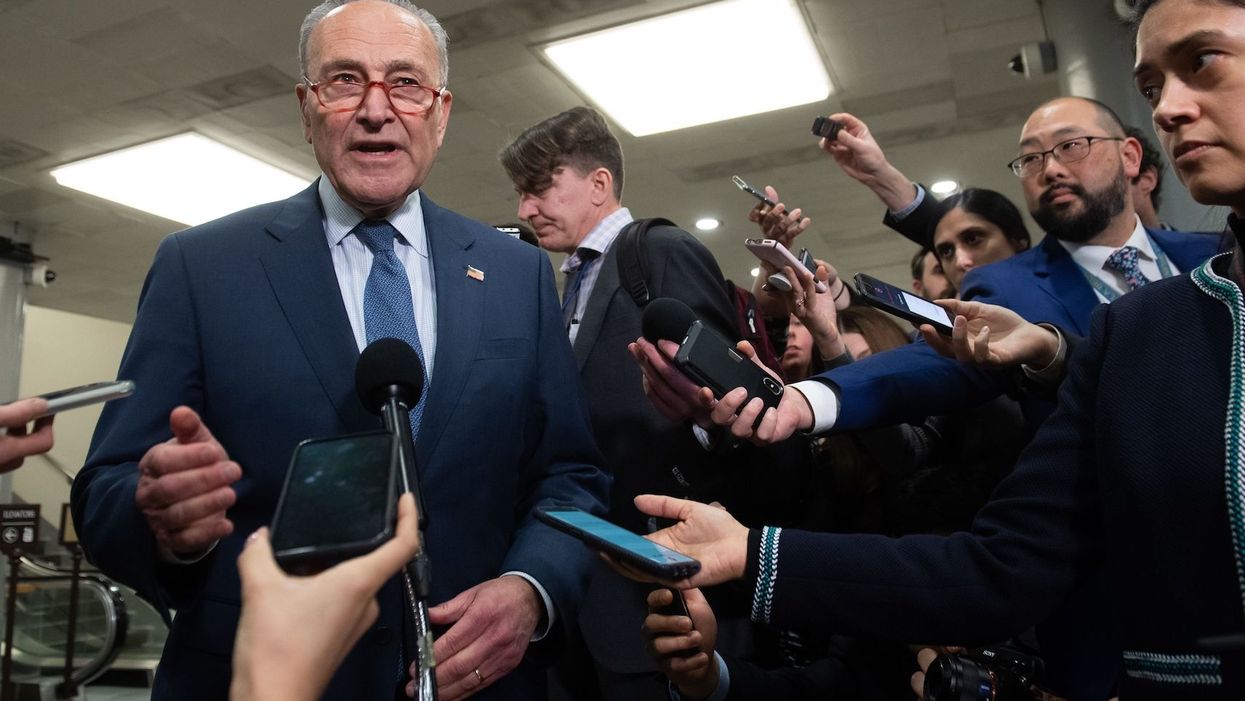
SAUL LOEB/AFP via Getty Images

13 straight hours of debate about rules
The first day of the Senate impeachment trial of President Donald Trump was a 13-hour marathon of repetitive debate between the Democratic impeachment managers and White House counsel about the trial rules proposed by Senate Majority Leader Mitch McConnell (R-Ky.) — and after a few hours, CBS decided to spare its viewers.
The hearing began at about 1 p.m. ET, and by 3:15 p.m., CBS had returned to regularly scheduled programming: daytime soap operas, according to the Associated Press.
CBS decision-makers apparently decided that the best choice for its ratings would be to revert to normal programming, leaving the impeachment coverage on its news-streaming platforms for those still motivated to watch. ABC and NBC stayed with the trial longer, partially because it was the first day.
According to AP, CBS local affiliates were given the choice about whether to show more of the trial or show regular programming.
Despite the historical significance that comes with the beginning of a presidential impeachment trial, the excitement quickly wore off due to the nature of Tuesday's process-based hearing. McConnell proposed his rules, which Democrats' opposed, leading to an all-day and all-night slog through 11 amendments by Senate Minority Leader Chuck Schumer (D-N.Y.).
Each amendment, after it was introduced, opened up the hearing to a two-hour period of debate, equally divided between the opposing sides, allowing for long repetitions of Democrats' impeachment case by familiar faces like Reps. Adam Schiff (D-Calif.) and Jerry Nadler (D-N.Y.), among others, as well as recitations of President Trump's complaints against impeachment, led by lawyers Pat Cipollone and Jay Sekulow.
After each debate, the amendments were then called to a roll call vote, during which each of the 100 senators' name is called for a verbal "yes" or "no" vote — typical congressional procedure, but not great television.
A lack of suspense about the outcome also probably contributed to CBS' decision to move away from the trial coverage. In the end, McConnell's original rules were adopted and all Schumer's amendments were tabled. Every vote was a straight party-line result, with one exception. Republican Sen. Susan Collins (Maine) voted with Democrats on an amendment that would've extended the amount of time given for both sides to respond to motions.